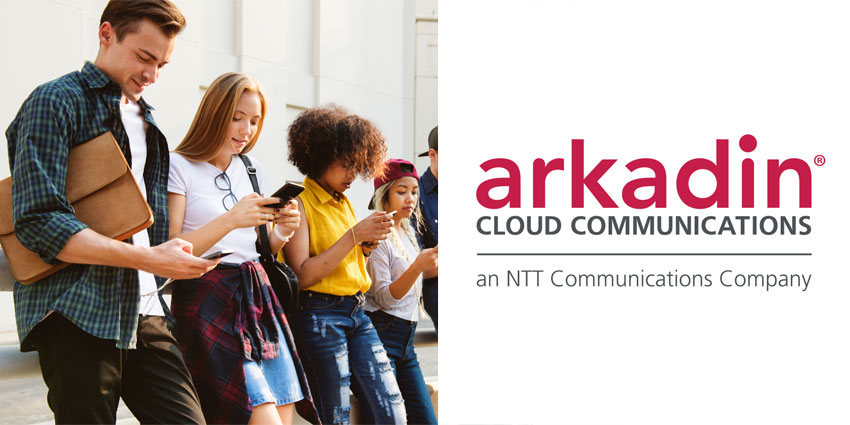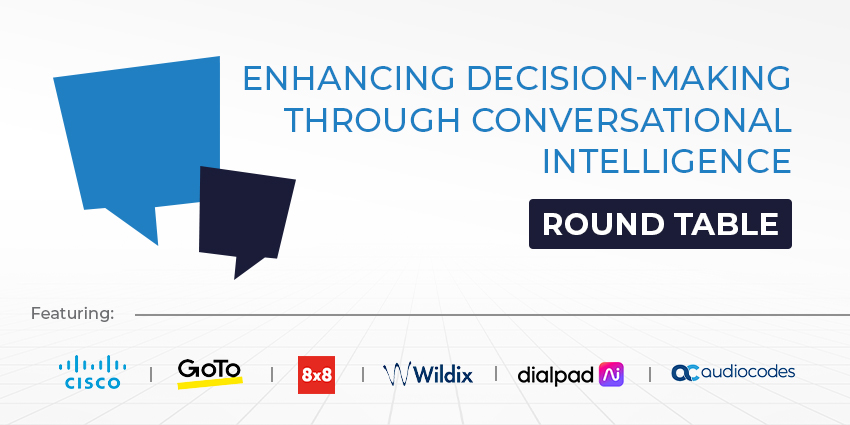Businesses are witnessing the rise of a new generation of employees: the millennial. And with this tech-savvy and self-confident group comes a new set of expectations for the workplace. Millennials are independent, highly skilled, able to multitask and used to teamwork, but they are also more demanding and have the confidence to ask for what they want. With millennials set to be 75% of the workforce by 2030, they offer a new perspective on how organisations should operate, and as they climb up the ranks these companies will be forced to adapt.
To ensure that they don’t get left behind, businesses are having to develop new engagement policies to account for generational differences and attract millennial workers. Elaine Murray, Global UC Marketing Manager at Arkadin, explains why unified communications could be the key to motivating, engaging and retaining this emerging and exciting workforce and future proofing your organisation.
It suits their social mindset
Millennials are more accustomed to working in a team than any other generation and technology is instinctive to many of them. Millennials prioritise social factors when using their workplace communication platforms and systems that support cross-location collaboration and personal relationships.
It is crucial that technology not only enables collaborative work on projects and tasks but also gives the feeling that colleagues are working side by side. Using a unified communications tool can make employees feel more connected to each other by offering a number of different easy and instant touch points and features such as instant messaging, video conferencing and virtual hangouts. In a team environment, face-to-face communication is vital for visual and non-verbal cues, perfect for building rapport and establishing the trust that millennials crave.
It satisfies the desire to be creative
Having grown up with the internet, millennials are accustomed to having instant access to information. They can also adjust readily to new programs, operating systems and devices to perform tasks quickly. But the ease and speed at which work is now possible has developed millennials into a group that is constantly looking to work on new problems and finding innovative solutions.
With the use of technology, collaborative tasks can be assigned without the restrictions of location or availability, encouraging team members to push each other to be more and more creative. Online team spaces with message boards or comments sections, enable more people to share at once, increasing participant satisfaction and leading to more ideas generated in less time. Exchanging information is now easier than ever and with the use of the correct unified communication platform, the skills of the group can be enhanced and harnessed.
It enables feedback
Used to instant information and focused on fulfilment, millennial employees want to know if they have done a good job immediately; the traditional annual performance review is far too infrequent for this generation. This group wants clear checklists, to-do lists, constant support and frequent feedback.
A simple online platform, that includes project management technology helps to streamline tasks across multiple locations and ensures that everyone is on the same page. Management of remote workers or multiple teams is made easier with platforms built for regular check-ins and conversations, as both parties can establish priorities, keep track of progress and highlight concerns from any location. Shared documents and instant messaging features allow for instant feedback and the chance to progress projects fast.
It adapts to their needs
Millennials are more self-aware than any other generation. They know how they want to work and what they expect from an employer. They are highly skilled and have the confidence to demand that a business adapts to them rather than the other way round. Gone are the days that everyone works in a traditional office during ‘business hours’.
In order to get the best out of their employees, organisations have to adapt to the reality of changing work styles. Collaboration tools are designed to be dynamic and adapt to the huge variety of employee needs. Unified communications software includes a selection of personal apps to keep notes and tasks organised in one place and features can be adjusted to the users’ individual experience. The level of configurability and control these platforms offer is unique and is key to motivating different millennial mindsets.
Collaboration tools exist to help your employees work at maximum productivity and peak efficiency, but they can also inspire and adapt as your workforce changes. Millennials represent a generation like no other making it more crucial than ever that organisations develop robust strategies for attracting, engaging and retaining them. A unified communications strategy is at the heart of successful employee engagement, opening up different opportunities for individuals and for your business

Guest Blog by Elaine Murray, Global UC Marketing Manager at Arkadin
Elaine is responsible for the branding and awareness of unified communication solutions at Arkadin, and has over 10 years experience in the IT channel. Founded in 2001, Arkadin is one of the world’s largest and fastest growing global collaboration services provider, offering a range of market-leading audio, web and video conferencing and Unified Communication solutions that meet specific business needs. As a proud member of NTT Communications group, Arkadin has over 15 years of industry expertise in supporting customers, spanning from large global enterprises to small business in 19 languages, over 50 offices and across 33 countries.







